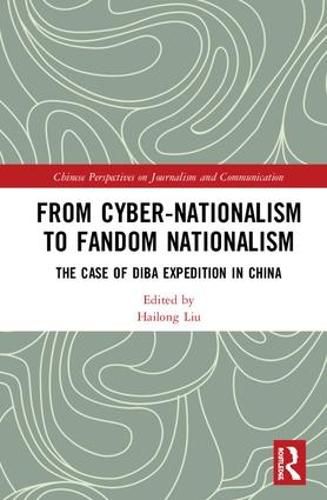Readings Newsletter
Become a Readings Member to make your shopping experience even easier.
Sign in or sign up for free!
You’re not far away from qualifying for FREE standard shipping within Australia
You’ve qualified for FREE standard shipping within Australia
The cart is loading…






This book gives a deep description of a new trend in Chinese cyber-nationalism through an examination of Diba Expedition 2016. The eight chapters, written by researchers from the United States and China, touch on the topics of history, mobilization, and the organization of new cyber nationalism; the evolution of symbolic devices; and the impact of information and communications technologies (ICTs), consumerism, fans culture, and Internet subcultures on cyber-nationalism and the political consequences of it. The authors have embedded the Diba Expedition and new cyber-nationalism, which may be called fandom nationalism, in the media ecology of social media, the mobile Internet, the smartphone, and a new generation of ICTs. They also try to explain the change in the Chinese political culture from the turn of the twenty-first century up to now under the impact of official nationalistic education, commercial culture, and the grassroots Internet culture. Readers interested in political culture, Internet culture, and youth culture will find this book helpful in understanding why traditional nationalism, with hatred, anger, and actions in the real world, has evolved into fandom nationalism, with love, satire, and actions in the virtual world, as illustrated in the Diba Expedition.
$9.00 standard shipping within Australia
FREE standard shipping within Australia for orders over $100.00
Express & International shipping calculated at checkout
This book gives a deep description of a new trend in Chinese cyber-nationalism through an examination of Diba Expedition 2016. The eight chapters, written by researchers from the United States and China, touch on the topics of history, mobilization, and the organization of new cyber nationalism; the evolution of symbolic devices; and the impact of information and communications technologies (ICTs), consumerism, fans culture, and Internet subcultures on cyber-nationalism and the political consequences of it. The authors have embedded the Diba Expedition and new cyber-nationalism, which may be called fandom nationalism, in the media ecology of social media, the mobile Internet, the smartphone, and a new generation of ICTs. They also try to explain the change in the Chinese political culture from the turn of the twenty-first century up to now under the impact of official nationalistic education, commercial culture, and the grassroots Internet culture. Readers interested in political culture, Internet culture, and youth culture will find this book helpful in understanding why traditional nationalism, with hatred, anger, and actions in the real world, has evolved into fandom nationalism, with love, satire, and actions in the virtual world, as illustrated in the Diba Expedition.